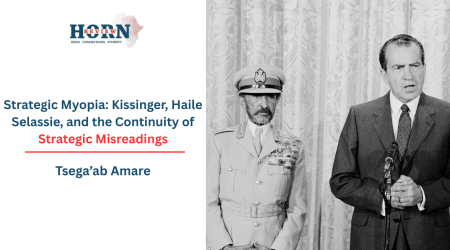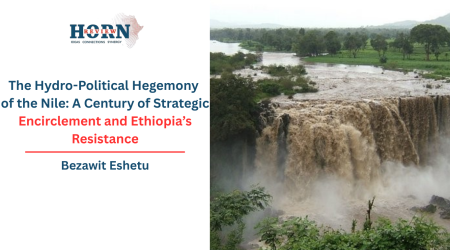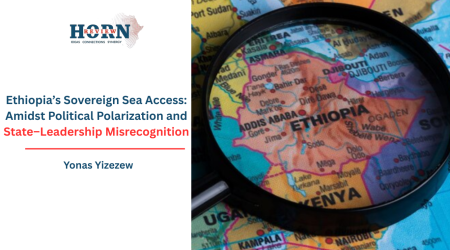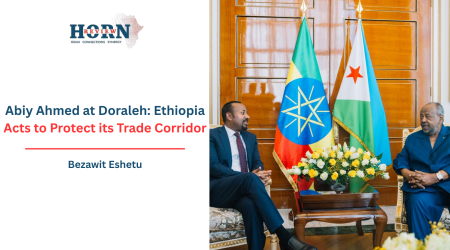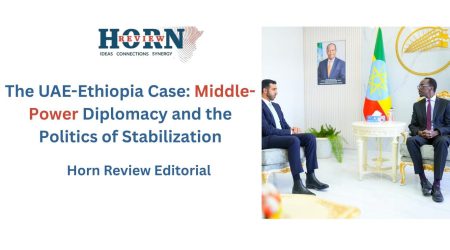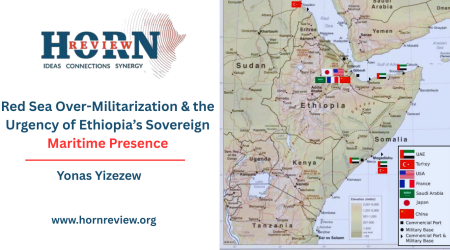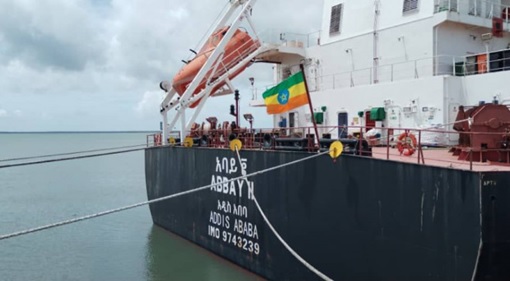
1
Apr
Navigating Tides of Influence: Ethiopia’s Maritime Aspirations and the Red Sea Power Struggle
The Red Sea, a vital conduit bridging Africa and Asia, has increasingly become a theater for strategic contestation among Middle Eastern and global powers. In their pursuit of geopolitical influence, these actors often marginalize the legitimate economic and political stakes of the littoral states. Such maneuvers not only compromise maritime security and disrupt the free flow of global trade but also contravene the foundational principles of international law that mandate equitable access to maritime resources. If properly upheld, these legal frameworks could facilitate enhanced trade, investment, and logistical integration, fostering greater regional stability.
On 23 March 2025, Egyptian President Abdel Fattah El-Sisi and Eritrean Foreign Minister Osman Saleh convened to deliberate on the Red Sea’s future, while Eritrean President Isaias Afwerki held discussions with Omani Foreign Minister Badr bin Hamad Al Busaidi in Asmara. These high-level engagements underscore a concerted effort to sideline Ethiopia’s historical and geopolitical claim to maritime access, effectively marginalizing non-coastal states from discussions that profoundly impact their economic futures. The outreach to Oman further signals an emerging regional consensus aimed at rejecting Ethiopia’s maritime aspirations.
For over three decades, Ethiopia’s landlocked status has been a formidable developmental constraint. The absence of direct seaport access has forced the nation into economic dependencies that hinder its long-term growth. Recognizing the strategic imperative of securing maritime access, Ethiopia has embarked on a diplomatic offensive, underscoring that its objectives are purely economic rather than expansionist. Prime Minister Abiy Ahmed has consistently reiterated that Ethiopia seeks a negotiated and mutually beneficial arrangement rather than unilateral territorial claims.
Despite Ethiopia’s assurances of diplomatic engagement, both Eritrea and Egypt have adopted a posture that heightens regional tensions. Historically, Eritrea functioned as an integral part of Ethiopia until its formal separation in 1991, with the port of Assab serving as Ethiopia’s primary trade gateway. Even after Eritrea’s de facto independence, Ethiopia retained access to Assab until hostilities between the two nations severed these ties.
Meanwhile, Egypt’s strategic calculus extends beyond maritime considerations; safeguarding its critical Nile water resources remains a central tenet of Cairo’s foreign policy. The Egyptian-Eritrean alliance is widely perceived as a countermeasure against Ethiopia’s growing influence, particularly in the context of the Grand Ethiopian Renaissance Dam (GERD) negotiations.
Egypt’s participation in the AUSSOM peacekeeping mission is increasingly viewed as a geopolitical maneuver to surveil and potentially obstruct Ethiopia’s maritime ambitions in key locations such as the Dahlak Archipelago, Berbera, and Assab. By leveraging its regional partnerships, Cairo seeks to assert control over crucial maritime corridors and preempt Ethiopia’s emergence as a significant maritime actor. The systematic exclusion of Ethiopia from critical discussions regarding Red Sea governance represents a high-risk geopolitical gambit, particularly given the broader involvement of major naval powers, including China, the United States, Russia, and European stakeholders.
Amid this shifting geopolitical landscape, Israel has emerged as an unexpected yet staunch advocate for Ethiopia’s maritime aspirations. Prime Minister Benjamin Netanyahu’s support, grounded in historical precedent and international legal frameworks, offers Ethiopia a crucial counterweight against regional opposition and reinforces its legitimate claims to maritime access. This alignment not only strengthens Ethiopia’s negotiating position but also highlights the broader strategic realignments reshaping the Horn of Africa.
A nuanced understanding of Ethiopia’s maritime aspirations necessitates an analysis that transcends historical grievances. It must incorporate the tenets of international legal instruments, such as the United Nations Convention on the Law of the Sea (UNCLOS), which enshrine the rights of landlocked states to access and utilize maritime resources. Furthermore, regional organizations such as the African Union (AU) and the Intergovernmental Authority on Development (IGAD) hold a pivotal role in facilitating diplomatic negotiations and mitigating tensions.
Beyond legal and diplomatic dimensions, the broader economic and environmental implications of Ethiopia’s maritime quest cannot be overlooked. The evolving dynamics of global trade routes, the sustainability of maritime ecosystems, and the emerging security threats posed by non-state actors—including piracy and militant groups—are integral to the discourse. Superimposed on these challenges is the ever-present strategic calculus of global powers whose shifting policies and alliances continuously redefine the regional order.
Ethiopia’s maritime ambitions are not merely an economic imperative but a geopolitical necessity. As the Red Sea remains a contested maritime space, the nation’s ability to navigate these turbulent waters will depend on its diplomatic dexterity, strategic partnerships, and adherence to international legal frameworks. The resolution of this issue will shape not only Ethiopia’s future but also the broader geopolitical stability of the Horn of Africa and the Red Sea basin.
By Surafel Tesfaye, Researcher, Horn Review


